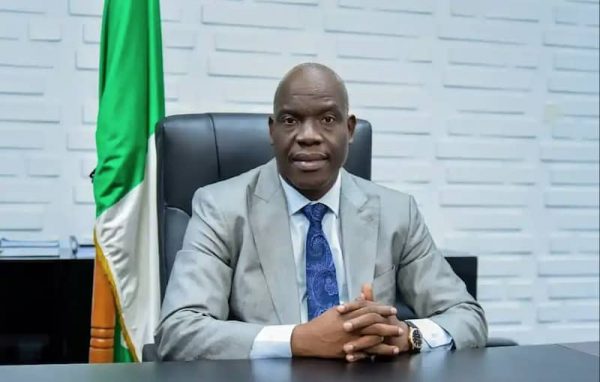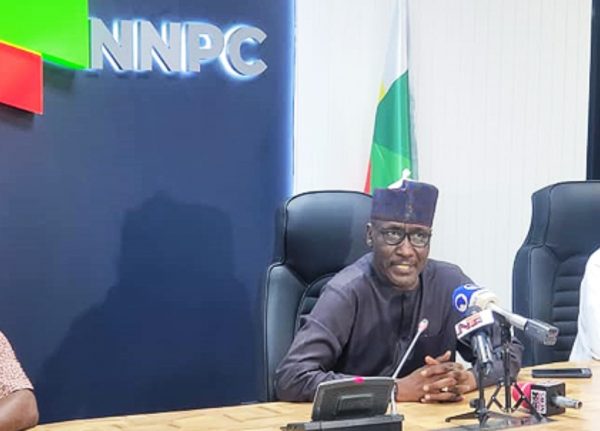PIA Has Restored Confidence In Nigeria’s Oil and Gas Sector- Komolafe, NUPRC CEO

Engineer. Gbenga Komolafe is the Chief Executive Officer of the Nigerian Upstream Petroleum Regulatory Commission (NUPRC), an agency saddled with the statutory responsibility of ensuring compliance with Nigeria’s petroleum laws, regulations, and guidelines in the Upstream Oil and Gas Sector. Komolafe assumed office in 2021 and his expertise as a seasoned engineer and lawyer has no doubt been instrumental in giving the regulatory body the needed impetus to achieve its mandate.
In this interview with Arise TV monitored by MMS Plus, Komolafe highlighted the giant strides that the Commission has achieved since his assumption of office, the role of the Petroleum Industrial Act (PIA) in ensuring that Nigeria meets its core objectives in oil production, the move by the Federal Government to attain zero- carbon emission by 2060 and sundry issues. EXCERPTS
How will you measure the impact of the Petroleum Industry Act (PIA) in the improvement of Nigeria’s oil and gas sector?
We waited for almost two decades for the passage of this laudable law, which will comprehensively reform the upstream sector and credit must specifically go to President Muhammadu Buhari for that laudable achievement. And consequent to that, expectations were high from both investors and the public at large.
I understand that there was little, or no time to delay on the implementation of this laudable law. And upon being appointed into the office, myself and my team quickly hit the ground running. We had a clear line of sight on the navigational part to drive the regulatory activities of the Nigerian upstream sector.
I’m proud to say that we did that and we’ve recorded a basket of achievements. And one of our first key achievements that we have which can be fact-checked on the basis of the positive feedback that we received is the fact that we have been able to restore confidence in the industry and you know that having confidence in a sector is very key to attracting investment because no investor wants to put his money in an environment of uncertainty and lack of clarity.
We have been able to restore confidence in the minds of investors. And I’m able to say that we have been able to do this via the processes that we have adopted in terms of the regulatory tools that were put in place.
Well, as a matter of fact, as part of our achievement, within a record time of 18 months we have been able to develop 18 key regulations; five of these regulations we are happy to say have been fully gazetted while the remaining 13 are currently being reviewed by the Ministry of Justice.
And we are optimistic that they too will, be gazetted, I mean within the shortest possible time so that implementation of those regulations can commence in earnest.
Aside from that, we have been able, within the record time of 18 months, to ensure the conversion of 40 Oil Prospecting Licenses (OPLs) and Oil Mining Leases (OMLs).
Aside from that also, within the Host Community, which is equally a key part of the Petroleum Industry Act we have been able to, within a few months, to incorporate 74 Host Community Development Trust (HCDT).and the beauty of that, is that we would be able to ensure that that in itself inculcates a sense of ownership in the host communities and by the time the HCDT begins to implement developmental projects within those host communities, that itself will engender peace in the host communities
And we know that creating a conducive environment for investors to thrive will help in achieving our core objective which is to increase the oil and gas production in Nigeria.
Aside from that, we have been able to unlike the pre-PIA regime now operates with clarity and our decisions are fully guided by law, by and large we have also been able to automate our processes in a manner to ensure operational efficiency which we equally feel is key to engender efficiency in the system. We also recognize that there is still more to be done.
What is your take on the overlap of function between the midstream and downstream regulatory authority and NUPRC?
Let me say that the PIA clearly provides for the statutory functions to the two regulators in the industry, the Nigeria Upstream Petroleum Regulatory Commission (the “Commission”) and the Nigeria Midstream and Downstream Petroleum Regulatory Authority (the “Authority”),
Chapter 1 Part 3 of the PIA provides for the function of The Commission while Part 4 of the PIA clearly provides for the statutory function of the Authority. In that respect, Section 7 AA of the PIA also mandates the Commission to be fully responsible for regulating the activities of the terminals and the Issuance of Certificates of Quality and Quantity, the quota of crude oil and gas liquid within the Nigerian terminals, in that respect, as far as the Commission is concerned there is no ambiguity in the provision of the PIA.
In the course of the implementation, there were observations of overlap in the industry and again, kudos to Mr. President, he quickly responded to the situation and gave express directives to both the Authority and the Commission and those directives are been carried out.
NUPRC as you alluded has developed key regulatory framework. Can you shed more light on the effectiveness of those regulatory objectives?
Thank you very much, like I said on assumption, we developed key regulatory objectives in a manner that has enabled the Commission to be focused on its activities and that has enabled the Commission to achieve all that I earlier highlighted in those shortest possible time.
The first of those objectives is that we have outlined for ourselves to be able to ensure that there is transparency in hydro-carbon accounting as a key objective and through that, we have been able to curb leakages.
We also have a key objective to enhance our national oil and gas production which is a key objective of the statutory mandate of the Commission.
The other objective is to reduce the unit cost of production of oil. Believing that when we’re able to achieve that, then we will be able to optimize revenue for the federation from the nation’s hydro-carbon resources. Aside that objective, we are actually trying to ensure that there is peaceful and conducive host community environment, which is equally in line with the provisions of section 235 of the PIA and also we know we’re in energy transition regime, we are equally pursuing it in line with the Martin Gilbert Footprint in the energy transition, to decarbonize the environment.
We also equally have that focus to attain zero-carbon emissions in line with commitment of our nation as committed to by Mr. President at COP 26 that Nigeria must attain zero-carbon emissions by the year 2060, so, these are the objectives of the commission and we are diligently pursuing that.
The PIA has provisions to ensure conducive environment for operators in the industry how has the NUPRC been able to actualize this?
Section 235 of the PIA provides for the implementation of the host community development trust. I can assure you that in 18 months, we have been able to incorporate 72 Host Community Development Trust and aside this, we have been able to collaborate with an Original Equipment Manufacturer, OEM to put in place a digital automated platforms to ensure transparent implementation of those host community in a manner that both the sector, the host communities and the public at large can transparently monitor the implementation of the trust fund. So, for us, this is a laudable achievement.







